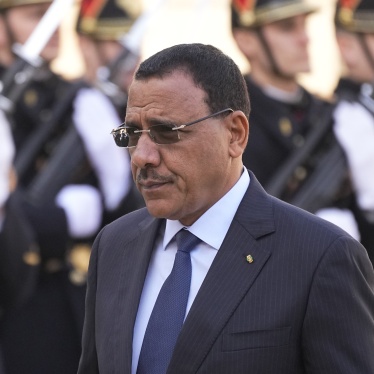(New York) - US Secretary of State Hillary Clinton's comments en route to China that contentious issues such as human rights "can't interfere with the global economic crisis, the global climate change crisis and the security crises," send the wrong message to the Chinese government, Human Rights Watch said today. Secretary Clinton also suggested that on human rights issues it "might be better [for the US and China] to agree to disagree."
Human Rights Watch stressed, as it did in a letter to the secretary last week, that progress in each of these key areas is inseparable from securing progress in human rights. Freedom for the press, whistleblowers, and critics is essential to preventing environmental damage and defective products that threaten China and the world; labor rights abuses and the lack of rule of law destabilize China's economy which is part of a global economy; and unconditional aid to highly abusive governments destabilizes international peace and security.
"Secretary Clinton's remarks point to a diplomatic strategy that has worked well for the Chinese government - segregating human rights issues into a dead-end ‘dialogue of the deaf,'" said Sophie Richardson, Asia advocacy director at Human Rights Watch. "A new approach is needed, one in which the US engages China on the critical importance of human rights to a wide range of mutual security interests."
In recent years, the Chinese government has made some progress on human rights issues, including enshrining in the Constitution the state's responsibility to protect and promote human rights, the adoption of new labor protections, and the relaxing of restrictions on foreign journalists inside China. These and other gains were made partly as a result of sustained international pressure; conversely, some of the issues on which the Chinese government has refused to improve are ones rarely raised publicly by other governments, such as human rights abuses committed by the Chinese government in the name of suppressing terrorism.
"A successful strategy for the US doesn't entail ‘agreeing to disagree,' but rather convincing China it is in its own interest to protect dissent, peaceful protests, and the creation of a truly independent legal system," said Richardson. "Most importantly, ordinary people, workers, intellectuals, and even government and party representatives in China will also appreciate hearing the United States raise human rights issues in ways that echo their own day-to-day concerns about rule of law and government accountability."






